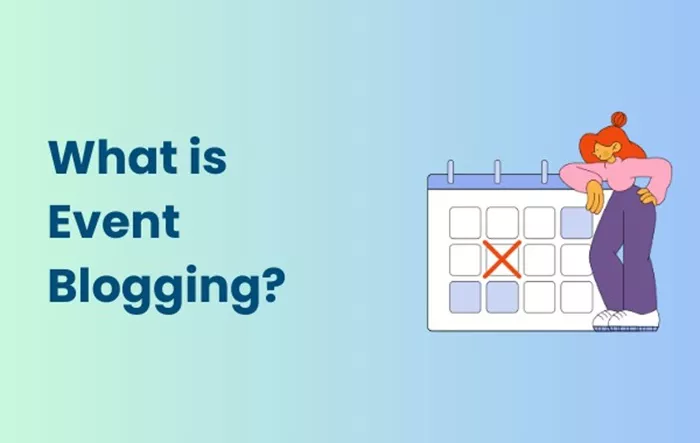Event blogging is a specialized type of blogging that focuses on creating and promoting content around specific events, holidays, or occasions. This form of blogging capitalizes on the heightened interest and search engine activity generated during a particular event’s timeframe. By strategically crafting content that aligns with these events, bloggers aim to attract significant web traffic, generate ad revenue, and often increase their audience engagement within a limited period.
Understanding Event Blogging
At its core, event blogging revolves around the strategic use of trending topics or upcoming events to create content that is both timely and relevant. The events can vary widely and include:
Global Events: World Cups, Olympics, or international political summits.
Festivals and Holidays: Christmas, Halloween, Valentine’s Day, Diwali, or Thanksgiving.
Cultural Moments: Movie premieres, award shows, or book launches.
Local Events: State fairs, regional sports tournaments, or city-wide celebrations.
The primary objective of event blogging is to target high traffic volumes during a short period, leveraging the spike in online searches related to the event.
Key Characteristics of Event Blogging
Time-Sensitive Content
Event blogging thrives on time-sensitive topics. Unlike evergreen content, which remains relevant for years, event blogs are designed to attract attention during a narrow window when interest is at its peak.
SEO-Driven Strategy
A significant portion of event blogging success relies on search engine optimization (SEO). Bloggers use targeted keywords, trending hashtags, and localized terms to rank high on search engine results pages (SERPs) during the event’s timeframe.
High Potential for Viral Traffic
Events naturally generate buzz. By aligning content with an event, bloggers can tap into the organic interest and social media shares that come with it, resulting in exponential traffic growth.
Monetization Opportunities
With a sudden influx of visitors, event bloggers often monetize their sites through ads, affiliate marketing, and sponsored posts.
How Does Event Blogging Work?
Event blogging involves a structured process:
1. Research and Planning
Before the event, bloggers identify opportunities by:
- Analyzing upcoming events and their potential interest levels.
- Studying trends from past years to gauge popularity.
- Identifying gaps in existing content to provide unique value.
2. Content Creation
The content must be:
- Relevant: Aligning with the event theme or audience expectations.
- Engaging: Using compelling headlines, visuals, and storytelling techniques.
- Optimized: Incorporating keywords, meta descriptions, and internal linking.
3. Promotion
Promotion is crucial to driving traffic. Event bloggers often use:
- Social media campaigns.
- Email newsletters targeting subscribers.
- Collaborations with influencers or guest bloggers.
4. Monetization
Once traffic begins to flow, bloggers monetize through:
- Display Ads: Using platforms like Google AdSense.
- Affiliate Marketing: Promoting event-related products or services.
- Sponsored Posts: Collaborating with brands to feature their offerings.
Examples of Successful Event Blogging
1. Diwali Gift Ideas
A blog post featuring gift ideas for Diwali can attract a significant audience searching for last-minute inspirations. Including affiliate links to popular products increases the potential for earnings.
2. Black Friday Deals
A dedicated blog covering the best Black Friday deals, categorized by product type, can gain traction as consumers look for discounts.
3. FIFA World Cup Updates
Blogs offering schedules, team statistics, and predictions for the FIFA World Cup often see a surge in international traffic.
Benefits of Event Blogging
Quick Traffic Generation
Event blogs can attract thousands or even millions of visitors within days if optimized effectively.
Enhanced Visibility
Tapping into trending topics allows bloggers to gain visibility among broader audiences.
Short-Term Commitment
Unlike long-term blogging projects, event blogging requires intense focus only for a specific period.
High Revenue Potential
With high traffic volumes, the potential for ad impressions, clicks, and affiliate sales rises significantly.
Challenges in Event Blogging
Time Constraints
The success of event blogging heavily depends on timely content creation and promotion. Missing the peak interest window can render efforts ineffective.
Competition
High-value events attract numerous bloggers, creating stiff competition for search engine rankings.
Limited Lifespan of Content
Unlike evergreen blogs, event-focused content has a short relevance window. Once the event is over, traffic typically drops sharply.
Dependence on SEO and Promotion
Without effective SEO and promotional efforts, even the most well-written content can struggle to gain visibility.
Tips for Successful Event Blogging
Start Early
Begin researching and planning content weeks or even months in advance to ensure readiness when the event approaches.
Focus on SEO
Use tools like Google Trends to identify keywords and optimize your content accordingly.
Leverage Multimedia
Incorporate videos, infographics, and high-quality images to make your posts more engaging and shareable.
Engage on Social Media
Create event-specific hashtags and actively engage with your audience through platforms like Instagram, Twitter, and Facebook.
Offer Value
Go beyond generic content by providing unique insights, detailed guides, or exclusive deals that resonate with readers.
Conclusion
Event blogging is an effective way to harness the power of trending topics and events for rapid traffic and revenue generation. By strategically planning, optimizing, and promoting content, bloggers can create impactful blogs that capture the attention of large audiences in a short time. While challenges such as competition and time constraints exist, the rewards—ranging from increased visibility to high earnings—make event blogging a compelling option for those willing to invest their effort and creativity.
Related Topics

